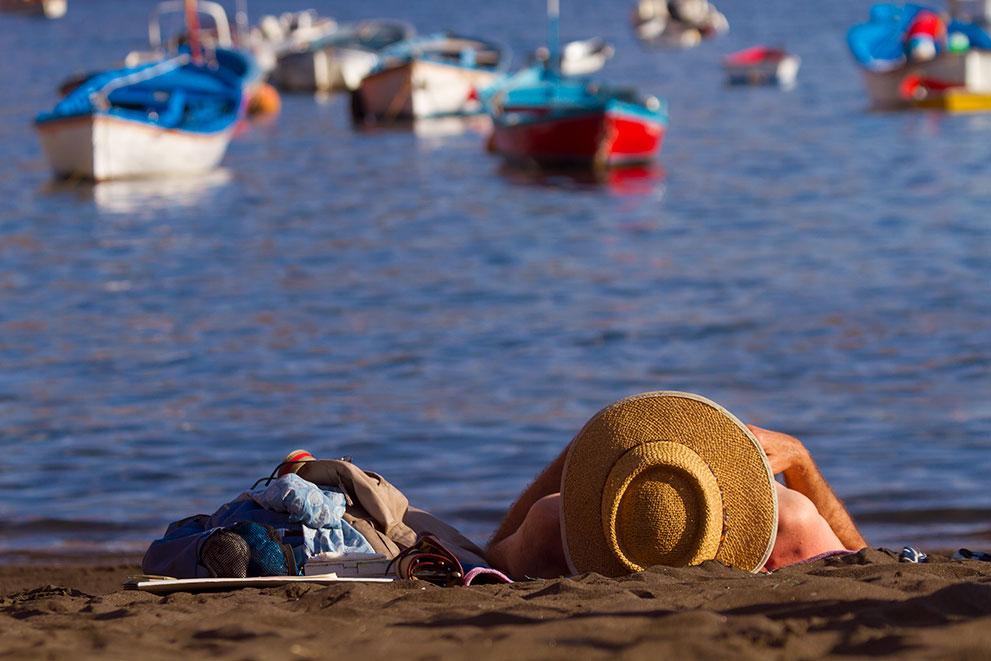How can you avoid your mobile phone during a holiday? For starters you have to be serious about addressing the problem. Then you can follow these few easy steps.


















Many people set out on a holiday with the intention to spend as much time as possible away from their mobile phone. Few succeed. Often holidaymakers have a job which requires their attention even when they are taking a break. Also, many people like to document their trips away with their phone, upload photos to the social networks, and interact with their friends with comments and likes. Some tourists end up spending more time on their phones during a holiday than the rest of the year. If holidaymakers are really going to enjoy a trip away without being glued to a screen, they will need to be serious about putting their phones down. Once that is clear, they can follow the easy steps below.
Let a change of routine help you to put your phone down
Psychologist Alberto Álamo, one of the co-founders of PSIKO, suggests that holidays are the optimal time to put your phone down. “Changes of routine are ideal for creating new habits. Once you start putting your phone down, you will forget that it even exists,” he says. Many people are used to looking at Facebook during breakfast or after dinner, or checking their email before they go to sleep. But during a holiday schedules change, and this can make it easier to modify our habits. Whilst on holiday you can spend less time on your phone and not suffer as much as a consequence.



A bedroom is a place to sleep
Many people sleep next to their phone because they say they need the alarm clock function. “It’s better to keep our phones out of our bedrooms,” says Alberto Álamo. “We need to understand that the bedroom isn’t a place which is compatible with a mobile phone.” Alberto Álamo is worried that people, especially young people, are too dependent on technology. “[Excessive phone use] is giving rise to certain deficiencies in social skills. The virtual world allows us to go round certain barriers that before phones existed we had to overcome directly,” says Alberto Álamo.






Understand your dependence
Alberto Álamo suggests that mobile phones shouldn’t be demonised though and that technology offers undeniable benefits to the way we work and live. “Tools such as WhatsApp have allowed people to communicate with one another in a more constant and fluid way. They have also given rise to new ways of working which mean we are less tied to an office,” says Alberto Álamo. What is important, it seems, is self-evaluation. Each person needs to understand the extent of their dependence on their mobile phone. They need to determine in what ways the phone improves their lives and in what ways it impairs their wellbeing." Holidays are a good moment for level headed thinking about how we use our phones. We can work out the extent and purpose of our usage. Then we can act,” says Alberto Álamo.



Make a schedule
Why post five holidays photos a day if one might be enough? Everybody needs to look at themselves and decide what their needs are and to what extent they might be able to reduce their phone usage and enjoy their holidays more. “It would be interesting for all those people who document their lives on social media to do an introspection exercise in which they attempt to locate their need to share intimacy. Could it be filling some sort of void? Such exercises are complex, but they are interesting, and they might help us to put a limit on our interaction with social networks,” says Alberto Álamo.









Patience is romantic
It is often difficult for those who have just embarked on a romantic relationship to go on holiday and be separated from their new playmate. Virtual communication can pose problems. “The intense wait that courtship entails is beautiful and human. Let’s not kid ourselves. It used to take place as well before the invention of mobile phones,” says Alberto Álamo. “It is important not to despair, and if an answer from our new friend doesn’t arrive, it is better to wait than riddle the other person with messages.” Alberto Álamo is interested in a new phenomenon which can concern people when they start a new relationship. “When we meet someone new we must understand that there is a possibility that there might be a difference in how our new friend acts in the real world and in the virtual world. The virtual world creates a game of presences and absences, and it is important that we don’t draw hasty or excessive conclusions,” says Alberto Álamo.




